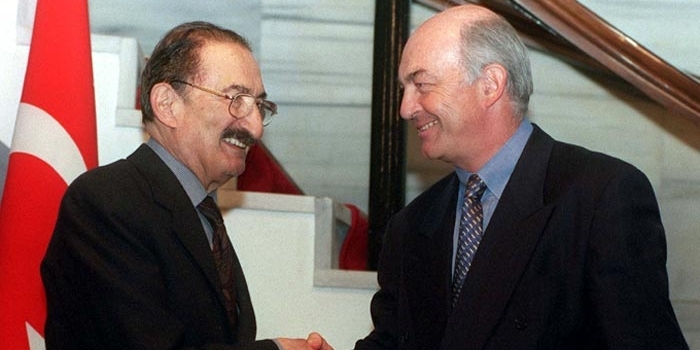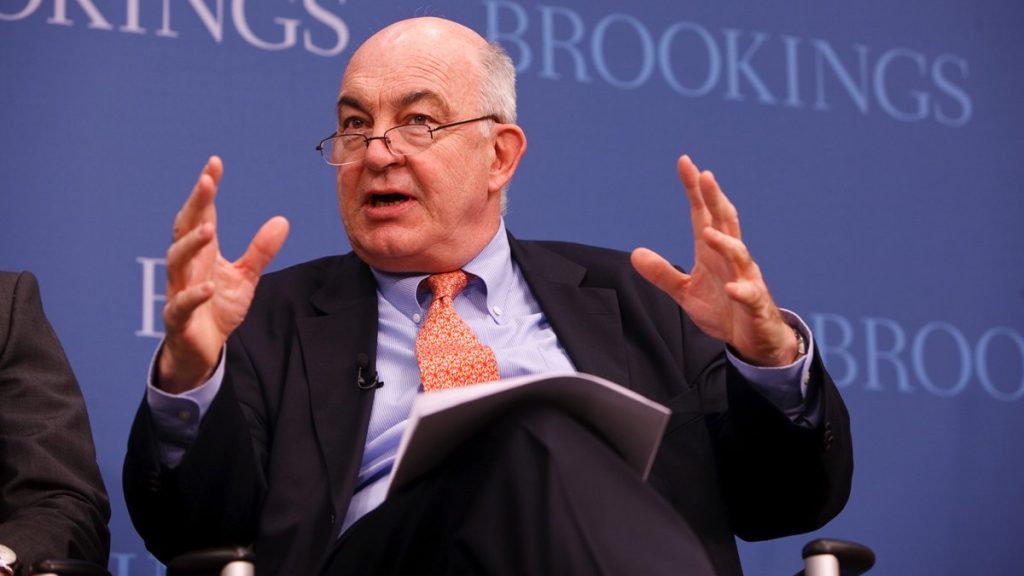Istanbul-born economist, politician and former head of the United Nations Development Programme, Kemal Derviş has died at the age of 74. He had Parkinson’s Disease and was being treated in Washington D.C. at the time of his death on Monday.
Derviş was a Vice President at the World Bank in Washington when he decided to leave his job of 22 years early in 2001, stepping into the political arena to help steer his native Turkiye out of the worst economic crisis in its modern history.
With inflation soaring, the country’s economy flatlining and a trail of failed financial restructuring attempts, the then Prime Minister Bülent Ecevit turned to Derviş in desperation.
The LSE and Princeton educated economist was appointed Turkiye’s Minister of the Economy, from where he oversaw a successful three-year recovery plan that included negotiating an $8 billion rescue package from the International Monetary Fund.
The IMF-backed loans came with requirements for major structural changes and bank reforms in Turkiye, as well as deep spending cuts. The initial pain borne by the country made way for a rapid recovery with low inflation, a more stable currency, and massive foreign investment.
Unfortunately, it was Ecevit’s successor, Recep Tayyip Erdoğan that would reap these benefits after his party, the Justice and Welfare Party (AKP), won a landslide election at the end of 2002.
By this point, Derviş had already resigned from his ministerial role and was instrumental in forming the New Turkiye Party with İsmail Cem, Zeki Eker and Hüsamettin Özkan. But he never joined the party, instead opting to become a candidate in the main opposition Republican People’s Party (CHP), which for the 2002 General Election.

Derviş was elected an Istanbul MP for CHP, but his political career came to a close in 2005, when he was appointed head of the United Nations Development Programme – the UN’s third highest position after the Secretary-General and Deputy Secretary-General.
He did not seek a second term when his four-year term expired in 2009. He instead moved to the Brookings Institution, where he remained until 2017 overseeing its global economy and development programme.
In 2011, there was some suggestion that Derviş, a polyglot who spoke Turkish, English, French and German, could take over the running of the IMF when its head Dominique Strauss-Kahn was forced out in disgrace following accusations of sexual assault. The Turkish economist decided to stay put at the Brookings Institution.
Among those to pay tribute to Kemal Derviş was his AKP successor, former Turkish Economy Minister and now DEVA party leader Ali Babacan, who tweeted:
“I am very saddened by the loss of our esteemed minister Kemal Derviş, whose work I valued deeply and who represented our country successfully on the world stage”.
Çalışmalarına değer verdiğim, ülkemizi dünyada başarıyla temsil etmiş değerli bakanımızı, saygıdeğer Kemal Derviş’i kaybetmenin üzüntüsünü yaşıyorum.
Kendisine Allah’tan rahmet, ailesine sabır, ülkemize baş sağlığı diliyorum.
— Ali Babacan (@alibabacan) May 8, 2023
Prof. Özgür Demirtaş. Chair Professor of Finance at Sabancı University, also lamented the passing of the former minister, tweeting:
“I learned of Kemal Derviş’ passing with great sadness. He is a very important economist and minister. He was the architect behind the recovery from the 2001 crisis. If the reforms Kemal Derviş had wanted not been implemented, Turkey would have been stuck in the 2001 crisis. Condolences.”
Kemal Derviş’in vefatını büyük üzüntü ile öğrendim. Kendisi ÇOK önemli bir ekonomist ve devlet bakanıydı. 2001 krizinden çıkışın mimarıydı. Kemal Derviş’in o aşamada istediği reformlar uygulanmasa Türkiye 2001 krizine saplanıp kalırdı. Allah Rahmet Eylesinpic.twitter.com/o6L0mB7Rs8
— Özgür Demirtaş (@ProfDemirtas) May 8, 2023
Born to a Turkish businessman father with Albanian and Georgian roots, and a German mother (who met Derviş’s father while working as a secretary in the German Embassy in Ankara), the young Derviş’s early years was spent on Büyükada speaking German to his mother.
He was sent to boarding school in Switzerland, and from there to the London School of Economics (LSE), where he received his bachelor’s and master’s degrees in 1968 and 1970 respectively. He completed his PhD from Princeton University in 1973, and when on to lecture there and at Turkiye’s Middle East Technical University for four years.
He joined the World Bank in Washington in 1978, rising to the rank of Vice President with responsibility for the Middle East and North Africa.
As a member of the Turkish Parliament, Derviş was a member of the Convention for the European Constitution from 2003-2004.
He was also a member of various advisory boards, notably at Sabancı University, and was an adjunct professor at Columbia University from 2009-2015.
He authored and co-authored several books on economics, including Kemal Derviş Anlatıyor : Krizden Çıkış ve Çağdaş Sosyal Demokrasi [‘Kemal Derviş Explains: Recovery from the Crisis and Contemporary Social Democracy’] in 2006 and “Inequality in America: Facts, Trends and International Perspectives”, in 2012.
For some Turks, Derviş was an economic saviour, for others an agent of the West whose reforms ushered in globalism that paved the way for Turkiye’s national assets to be sold off.
Kemal Derviş, who was born on 10 January 1949, and died on 8 May 2023, is survived by his second wife, Catherine, and his first wife, Neslihan Boralı, and their two sons, Erdal and Erol. He was laid to rest in the USA.





